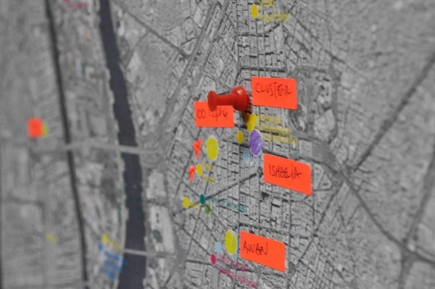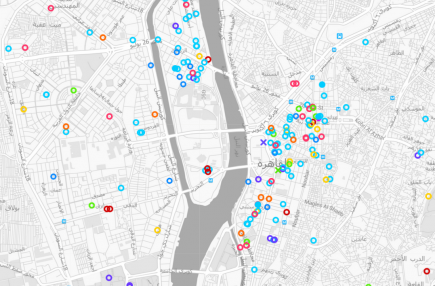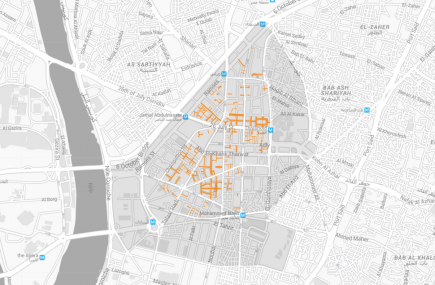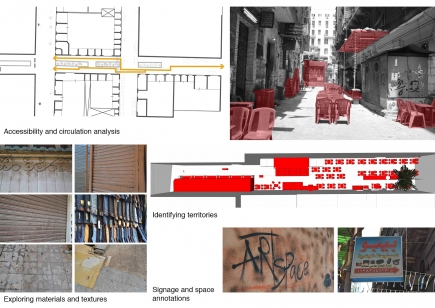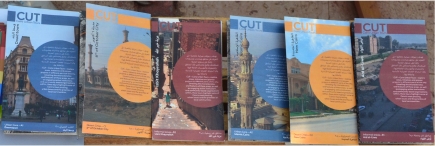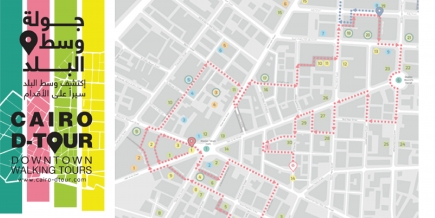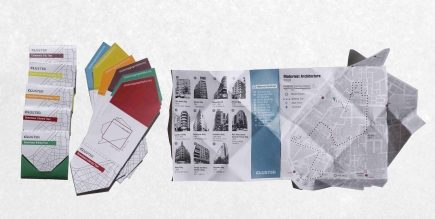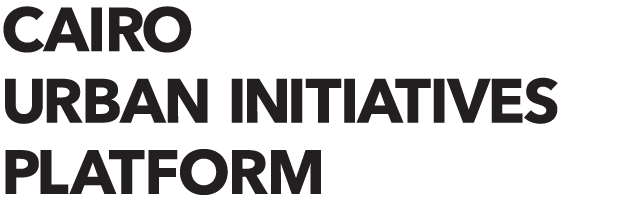| Type: | |
| Areas of Focus: | |
| Activities: | |
| Resources: | |
| Address: | 4 Sulaiman Abaza St., No. 7, Muhandisin, Cairo, Egypt |
| Date of Establishment: | 1976 |
| Website: | https://www.hic-net.org/?fbclid=IwAR21qynCfBhJtdHP7pdI9Veq8uc2lE_rTHPQ4bN96pmKEoyaIuUxRCqSdHc https://web.facebook.com/habitatinternationalcoalition |
| Email: | rhwahba@hic-mena.org, gs@hic-net.org |
| Phone: | 02 37486379 |
What is Habitat International Coalition?
HIC is an independent international nonprofit Coalition of organisations and individuals working in the field of human settlements. It was organized in 1976 as a nongovernmental counterpart to the UN Commission on Human Settlements, and both emerged from the process of convening the first UN Habitat conference at Vancouver (Canada), in 1976.
HIC members include over 450 NGOs, CBOs, academic and research institutions, civil society organisations and like-minded individuals, from 80 countries in both North and South. The binding factor is a shared set of objectives that shape HIC`s commitment to communities working to secure housing and improve their habitat conditions.
...............................................
What are HIC`s objectives, and how does it achieve them?
HIC`s objectives are outlined in its Constitution, and members formally subscribe to them. HIC advances these objectives at local, national, regional and international levels through a range of activities. New strategies develop continually, and HIC bodies and members put them into action. HIC is dedicated to collective action toward the following objectives:
Recognition, defence and full implementation of everyone`s right to a secure place to live in peace and dignity, in all countries. Legal protection of the right to housing is a first step to support the efforts of communities producing housing. Through its representation by constituents with legal specialisation, since 1988 HIC has intervened in UN human rights bodies to define the human right to housing, as well as states` obligations to respect and fulfill it.
Serving as a pressure group in defense of the rights of the homeless, poor and inadequately housed. HIC promotes public awareness about human settlement problems, as well as information exchanges on these problems toward potential solutions. HIC also constitutes a platform for formulating NGO policies and strategies in the field of human settlements, and serves as their representative to international organisations. 2. Serving as a pressure group in defense of the rights of the homeless, poor and inadequately housed. HIC promotes public awareness about human settlement problems, as well as information exchanges on these problems toward potential solutions. HIC also constitutes a platform for formulating NGO policies and strategies in the field of human settlements, and serves as their representative to international organisations.
HIC attains these objectives through campaigns, seminars and conferences, publication of statements, reports, newsletters and other study and information materials; research and other projects; supporting networks and information exchanges; and any legal means.
...............................................
How did HIC come about?
When first initiated in 1976, HIC`s original title was the NGO Committee on Human Settlements. On the occasion of an NGO meeting at the first session of the UN Committee on Human Settlements (UN Habitat), at New York, 5–7 April 1978, the Committee elected its first President Han van Putten of the International Union of Local Authorities (The Hague), which undertook to host the NGO Committee`s secretariat.
Following a four-year term, Mr. van Putten was succeeded as president in 1982 by Benno Heinen, director of DESWOS (the German Federation of Housing Corporations) in Düsseldorf. At that time, the name of the organization was changed to Habitat International Council.
In 1984 David Hall, director of the Town and Country Planning Association (London) became president, serving until 1989. During that period, a seminar held by members in Limuru, Kenya, in 1987, formed a turning point in the members` collective philosophy and composition, committing itself to the service of people and communities living in poverty and deprivation. A special General Assembly held at Berlin, in 1987, culminated in the transformation of the movement`s name and Constitution. It thus emerged as a federated organization under the name Habitat International Coalition.
On 1 September 1988, Enrique Ortíz, of Mexico, began his work as secretary-general at the new HIC Secretariat in Mexico City. For more than ten years, HIC had developed its base in the Latin American region with a clear and defined mandate. The composition of the Coalition also has evolved further to incorporate and represent these groups and assume a predominantly Southern and developing-world character.
In 1989, Han van Putten returned to the presidency of HIC for a four-year term. Kirtee Shah, of the Ahmedabad Study Action Group (India), was elected to succeed Mr. van Putten, and Mr. Shah was re-elected in 1997. In 2003, the HIC membership elected Enrique Ortíz as president for a four-year term.
By constitutional provision, the HIC Secretariat moves to a new center in the South every decade. In 1999, Enrique Ortíz resigned and the Secretariat moved to Cape Town, South Africa, where it operated as the coordinating hub of HIC today. Mr. Ethridge Jerry (South Africa) served as secretary-general in 1999–2000. In 2001, Cesare Ottolini (Padua, Italy) was appointed as interim general coordinator, pending the recruitment of a new secretary-general. In 2003, the HIC Board appointed Ana Sugranyes as secretary-general, who then established the HIC General Secretariat in Santiago, Chile.
...............................................
How does HIC operate?
A Board of Delegates from its Regional and Thematic Structures, as well as a president elected from and by the membership oversees HIC. A General Assembly of members is convened annually to oversee the Board and discuss policy issues.
HIC maintains low administrative overheads and few offices, as its constituent members form the organizational heart of the Coalition and its work. Much of the efforts of the Coalition depend on the coordinated contributions and participatory work of its constituents. HIC`s coordination hub is itsGeneral Secretariat, operated by a general secretary and small staff. In order to dedicate efforts to specialized functions and emerging regions, HIC maintains a Regional Resource Center in Mexico City (Coalitión Habitat Mexico), as well as its Housing and Land Rights Network offices in Geneva (UN liaison office), New Delhi (South Asian Regional Programme) and Cairo (HLRN coordination and Middle East/North Africa Programme).
HIC has found it most effective to organize coordination on the regional level, and members determine fellow organizations to manage communications and campaigns by serving as Regional Focal Points, for:
Africa (anglophone), hosted by Mazingira Institute (Nairobi);
Africa (francophone), hosted by Environnement et Développement du Tiers-Monde—ENDA-RUP (Dakar) ;
Asia, hosted by Asian Coalition for Housing Rights (Bangkok)
Europe, (in transition);
Latin America/Caribbean, hosted by Coalitión Habitat Mexico (Mexico City);Middle East/North Africa (HLRN, Cairo)
North America, hosted by National Association of HUD Tenants (Boston)
Middle East/North Africa (HLRN, Cairo).
Thematic Structures manage many of HIC`s activities. These coordinating structures are organized by specialized subject:
Housing and Land Rights Network, Habitat and Sustainable Environment Network, and Women and Shelter Network.
Working Groups form less-formal structures, joining HIC members with common interest in: Housing Finance and Resource Mobilisation, and
Social Production of Housing.
The HIC Constitution encourages initiatives by HIC members that contribute to HIC objectives. HIC also coordinates with other international organisations, federations of community organisations, municipal governments, and UN programmes.
...............................................
How does a member`s initiative become a HIC programme?
An example of HIC-member initiates comes from those involved in innovative community savings and credit schemes and in governmental housing funds. In 1993, several of these experiences were documented for a HIC Workshop on Finance and Resource Mobilisation for Low-income Housing and Neighbourhood Development, held in the Philippines. Conclusions included a decision to establish a HIC Working Group to exchange and promote peoples` finance innovations. Tried strategies such as those of People`s Dialogue and Homeless Peoples Federation in South Africa inspired community groups in other countries to establish similar savings structures controlled by the poor. This has resulted in the formation of the HIC Working Group on Finance and Resource Mobilisation.
...............................................
How are HIC and its activities financed?
A consortium of funders who share HIC`s objectives provides support for the HIC Secretariat and the Coalition`s coordinating structures. Supporting organizations include MISERIOR, ICCO, Ford Foundation and Carl Duisberg Gesellschaft, among others. International HIC events, occasional research and action projects, and other activities may be financed by foundations, government ministries, UN agencies, or other sources. HIC members also provide annual membership fees and other financial contributions. With shrinking international funding, HIC is working to increase its capacity to self-finance its expenses.
Donated funds finance an important portion of HIC Secretariat and general member activities. However, each HIC Committee and regional Focal Point finances its own activities. An important contribution to HIC activities and new initiatives is also provided directly by HIC members.
...............................................
What is HIC NOT?
HIC is not an NGO. It is a Coalition of organizations and individuals who share objectives and provide mutual support; it is a forum for exchanging ideas and strategies, and for developing and promoting policy proposals and solutions to problems where housing rights are at stake.
HIC is not a charity, nor a development agency, and it does not fund development projects. HIC support consists in the activities mentioned above and other solidarity actions. The General Secretariat, Thematic Committees and Working Groups, Focal Points and Board members play service roles for the Coalition, and to be a HIC member implies a responsibility to participate and contribute through mutual support of, and solidarity with fellow members.
...............................................
How can we join HIC, and/or contribute?
Membership is open to any community organisation, NGO, volunteer group, scientific, academic, professional, research or educational institution, or other nongovernmental organisation that works in housing and human settlements, and which subscribes to HIC`s objectives. Individuals also may become Friends of HIC.
To apply for HIC membership, please complete the following:
either fill out the on-line application on this website after reading the HIC Constitution and Organisational Structure (Philosophy, Principles and Objectives), or mail a filled copy of the application by mail to the HIC General Secretariat; and
submit the following to the HIC Secretariat inSantiago de Chile: A signed application form; a copy of your organisation`s Constitution; your most recent annual activity report; and your membership fee, according to the fee structure on the application form. The amounts outlined are minima, and organisations that can provide greater support are requested to do so.
HIC Supporters are HIC members or friends who commit to support the Coalition through a minimum yearly donation of US$500. HIC Supporters enjoy regular membership privileges and are recognised in the HIC annual reports and other forums.
Individuals or organisations wishing to support HIC without membership may also make financial or other contributions. Please contact the Secretariat.
...............................................
Where can we get more information?
Please contact the HIC Secretariat, your regional focal point or Board member, or the HIC Committees for more information. See list of contacts below. To view the HIC Constitution and Organisational Structure (Philosophy, Principles and Objectives).
